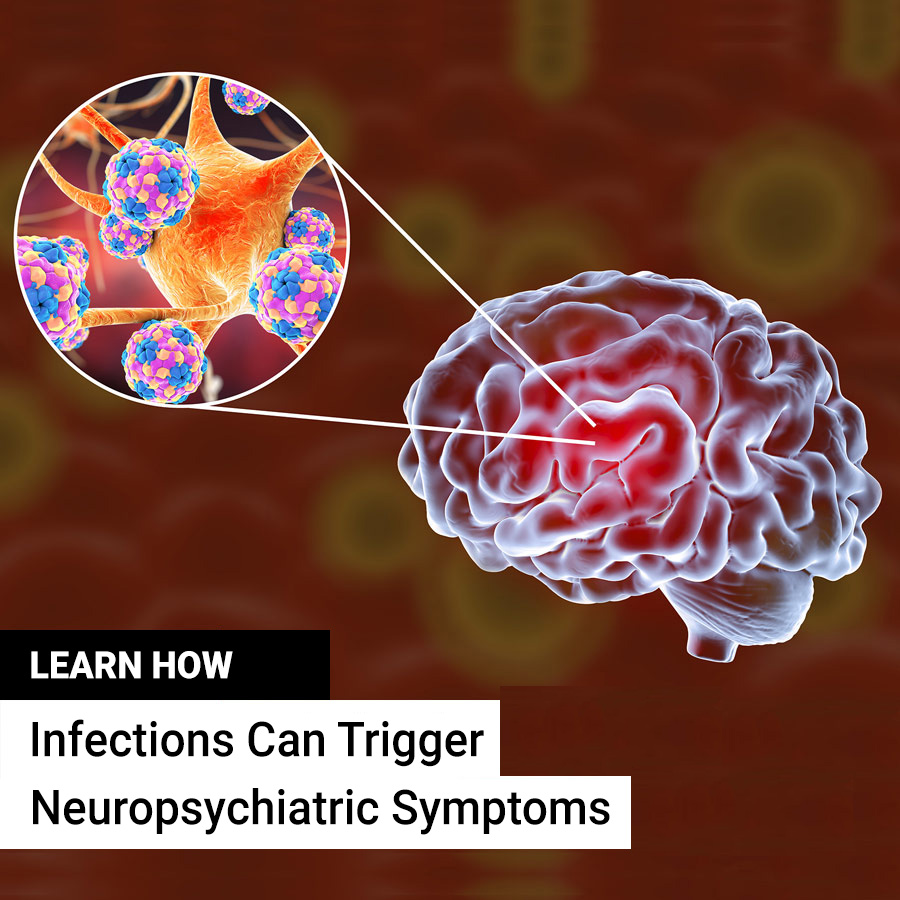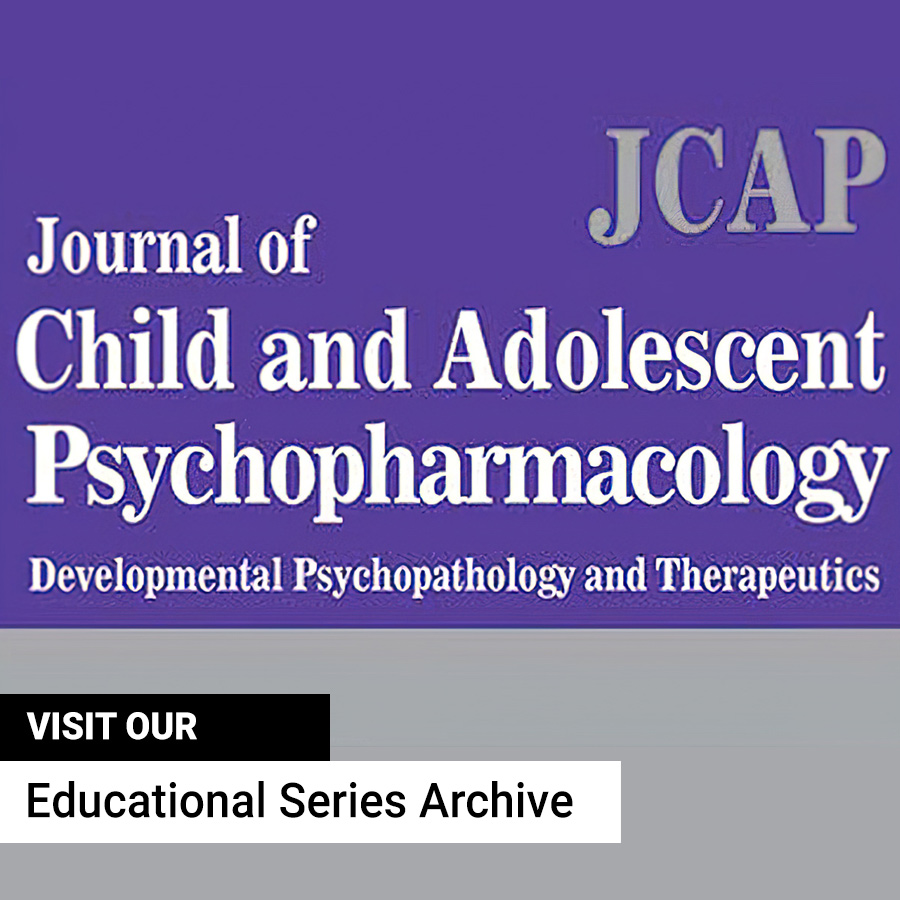Molecular Mimicry: How infections can trigger autoimmune encephalitis & neuropsychiatric symptoms The Cunningham Panel can aid in diagnosis & treatment
Webinar Info
- Speaker: Craig Shimasaki, PhD, MBA – President & CEO, Moleculera Labs
- Aired: April 25, 2022
ABOUT THE WEBINAR
Emerging scientific and medical research convincingly demonstrates a relationship between infections, inflammation, immune dysfunction, and the onset of neurologic and psychiatric symptoms.
This webinar is hosted by Moleculera Labs and He Who Laughs: Championing Mental Wellness. It provides an insightful, yet basic description of autoimmune encephalopathy, including * PANS/PANDAS and explains how certain infectious organisms can trigger these disorders through molecular mimicry with the production of autoantibodies, resulting in neuropsychiatric symptoms. We will also explain how this process applies to SARS-CoV-2 (COVID-19) and its association with neuropsychiatric symptoms.
Each of the five antineuronal and basal ganglia autoantibody targets in the Cunningham Panel™ will be described, as well as common symptoms associated with them. We will review pre- and post-treatment case studies and a recently published clinical study demonstrating sensitivity and specificity of these targets and their correlation with neuropsychiatric symptoms.
Laboratory test results can provide support for a physician’s clinical diagnosis of an underlying autoimmune dysfunction directed against certain brain and nervous system targets. Test results can also assist a clinician in determining an appropriate treatment regimen.
Clinical practice and studies have demonstrated that with proper testing and treatment, patients experience significant reduction in neuropsychiatric symptoms or even complete resolution.
* PANS – Pediatric Acute-onset Neuropsychiatric Syndrome; PANDAS – Pediatric Autoimmune Neuropsychiatric Disorder Associated with Streptococcal infections
PRESENTER
Craig Shimasaki, PhD, MBA
Co-founder & CEO,
Moleculera Labs
Craig Shimasaki is President and CEO of Moleculera Labs, a neuroimmunology precision medicine company focused on identifying underlying roots of neurologic, psychiatric, and behavioral disorders triggered by an autoimmune response. He is a medical research scientist with over 35 years of translational development experience in biochemical interactions, molecular biology, viral pathogenesis and infection-triggered neuropsychiatric disorders.
Dr. Shimasaki has worked at all stages of research and development from bench to bedside. His research included epitope mapping of HIV proteins, genetic based risk predictors of breast cancer, influenza and RSV diagnostics and therapeutics and pathogenesis of infection triggered neuropsychiatric disorders. As a businessperson, he co-founded multiple companies and led multiple products through the FDA approval process and is a co-inventor on multiple patents.
Dr. Shimasaki started his career at Genentech. He received his BS in Biochemistry from University of California at Davis, his PhD in Molecular Biology from the University of Tulsa, and his MBA from Northwestern University, Kellogg School of Business. He is an Adjunct Professor at the University of Oklahoma where he teaches biotechnology entrepreneurship. His passion is to help translate scientific and medical discoveries into acutely needed products so that more patients can live healthier lives.
HOST
April McMillan, MSW, LSW, ERYT-500, Reiki Practitioner
April is a proud, two-time graduate of The Ohio State University. She holds a Bachelor of Science in Human Ecology and a Master of Science in Social Work. April is a registered yoga instructor and is the owner of Anahata Mosaic, a yoga and wellness community, in Marysville, OH. In addition to the above education and training, April also holds a Reiki I and Reiki II certification. April is also one of the donor fund advisors for “He Who Laughs: Championing Mental Wellness.”
The webinar content has been made available for informational purposes only. It is not intended to be a substitute for professional medical advice, diagnosis, or treatment. Always seek the advice of your physician or other qualified health provider with any questions you may have regarding a medical condition. The information provided is not intended to be medical or healthcare advice for any individual medical problem, nor a substitute for medical or professional advice and services from a qualified health care provider.
By attending or viewing the webinar, you acknowledge and agree that we have not represented that any content provided in this webinar has the ability to diagnose a medical condition, prescribe treatment, or perform any other tasks that constitute the practice of medicine.
Moleculera Labs hereby disclaims any and all liability to any party for any direct, indirect, implied, punitive, special, incidental, or other consequential damages arising directly or indirectly from any use of the webinar content, which is provided as is, and without warranties.
All rights reserved. No part of this presentation may be reproduced, distributed, or transmitted in any form or by any means, including recording, photocopying, or other electronic or other methods without the prior written consent of the publisher.
- Evidence of Borrelia Autoimmunity-Induced Component of Lyme Carditis and Arthritis
https://www.ncbi.nlm.nih.gov/pmc/articles/PMC548028/ - Harbingers of Mental Disease-Infections Associated With an Increased Risk for Neuropsychiatric Illness in Children (Editorial)
https://jamanetwork.com/journals/jamapsychiatry/article-abstract/2716978 - Clinical Evaluation of Youth with Pediatric Acute-Onset Neuropsychiatric Syndrome (PANS): Recommendations from the 2013 PANS Consensus Conference
https://www.ncbi.nlm.nih.gov/pmc/articles/PMC4340805/ - Autoantibody Biomarkers for Basal Ganglia Encephalitis in Sydenham Chorea and Pediatric Autoimmune Neuropsychiatric Disorder Associated With Streptococcal Infections
https://www.frontiersin.org/articles/10.3389/fpsyt.2020.00564/full - 6-month neurological and psychiatric outcomes in 236,379 survivors of COVID-19: a retrospective cohort study using electronic health records
https://www.thelancet.com/journals/lanpsy/article/PIIS2215-0366(21)00084-5/fulltext - Will COVID-19 Lead to Myalgic Encephalomyelitis/Chronic Fatigue Syndrome?
https://www.frontiersin.org/articles/10.3389/fmed.2020.606824/full - Tubulins and brain development – The origins of functional specification
https://www.sciencedirect.com/science/article/pii/S1044743116302500 - Evaluation of the Cunningham Panel™ in pediatric autoimmune neuropsychiatric disorder associated with streptococcal infection (PANDAS) and pediatric acute-onset neuropsychiatric syndrome (PANS): Changes in antineuronal antibody titers parallel changes in patient symptoms
https://pubmed.ncbi.nlm.nih.gov/31884258/ - Case Report: PANDAS and persistent Lyme disease with neuropsychiatric symptoms: treatment, resolution and recovery
https://www.moleculeralabs.com/pandas-persistent-lyme-disease-treatment-resolution/ - Intravenous immunoglobulin for the treatment of autoimmune encephalopathy in children with autism
https://www.moleculeralabs.com/cunningham-panel-predict-treatment-response-autism-patients/ - An atypical presentation of Pediatric Acute Neuropsychiatric Syndrome responding to plasmapheresis treatment
https://www.moleculeralabs.com/cunningham-panel-results-help-determine-treatment-plan-child-schizophrenic-like-symptoms/ - Overview of Treatment of Pediatric Acute-Onset Neuropsychiatric Syndrome
https://www.ncbi.nlm.nih.gov/pmc/articles/PMC5610386/ - For information on diagnostic criteria and treatment of PANS and PANDAS, please visit:
www.pandasppn.org.







